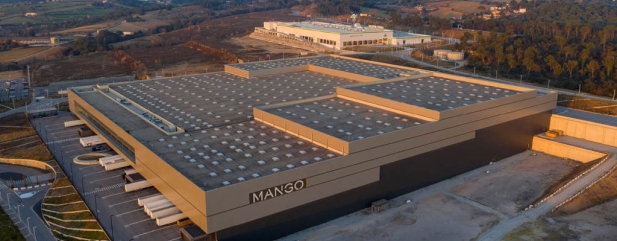Archived article
Please note that tax, investment, pension and ISA rules can change and the information and any views contained in this article may now be inaccurate.
Get in quick with this fund to play the e-retail boom

As Christmas trading updates from the retailers begin to dribble in, the continuing shift to online shopping has been very apparent again. This trend, which has led to a boom in the warehousing assets required to process internet-based orders in the UK, is beginning to gather steam in continental Europe.

In our view Tritax EuroBox (EBOX), which invests in industrial properties across the Channel, represents an excellent way to play a rise in web-based retail and therefore demand for warehouse space.
Customer demand should drive rental growth and support property asset valuations, underpinning an already attractive dividend yield of 4.5% based on forecasts from investment bank Jefferies.

Unlike several investors in logistics real estate in the UK which trade at hefty premiums, EuroBox trades at a modest discount to net asset value. That’s perhaps because mainland Europe is still playing catch-up with the shift to online versus
the UK.
Property specialist Savills suggests that once online retail accounts for 10.7% or more of total retail sales in a market then a tipping point has been reached and there is rapid growth in demand for warehouses. As the chart shows, many European countries are at or around that level. For context, online penetration in the UK is pushing 20%.
EuroBox was launched in July 2018 by the people behind Tritax Big Box REIT (BBOX) with a plan to rent out high quality logistics assets of 500,000 square foot or more to institutional-grade tenants on long leases.
The rate of acquisitions has been a bit slower than expected which is another contributor to the sluggish performance of the share price.
The upside of this disciplined approach is that EuroBox has avoided paying too much or buying the wrong assets. Inclusion in the FTSE EPRA NAREIT index series at the end of the first quarter of 2020 could act as a catalyst for the shares, improving liquidity in the stock as passive funds tracking the space are forced to buy.
The current portfolio includes five German assets, along with properties in Belgium, Italy and Poland. Another holding is located in Barcelona and leased to Spanish clothing design and manufacturing outfit Mango.
An agreement with Mango to fund an 88,000 square kilometre extension of this facility reflects both the capacity provided by land held within the portfolio to generate growth and the managers’ ability to create value by actively managing its existing asset base.
Important information:
These articles are provided by Shares magazine which is published by AJ Bell Media, a part of AJ Bell. Shares is not written by AJ Bell.
Shares is provided for your general information and use and is not a personal recommendation to invest. It is not intended to be relied upon by you in making or not making any investment decisions. The investments referred to in these articles will not be suitable for all investors. If in doubt please seek appropriate independent financial advice.
Investors acting on the information in these articles do so at their own risk and AJ Bell Media and its staff do not accept liability for losses suffered by investors as a result of their investment decisions.

 magazine
magazine








